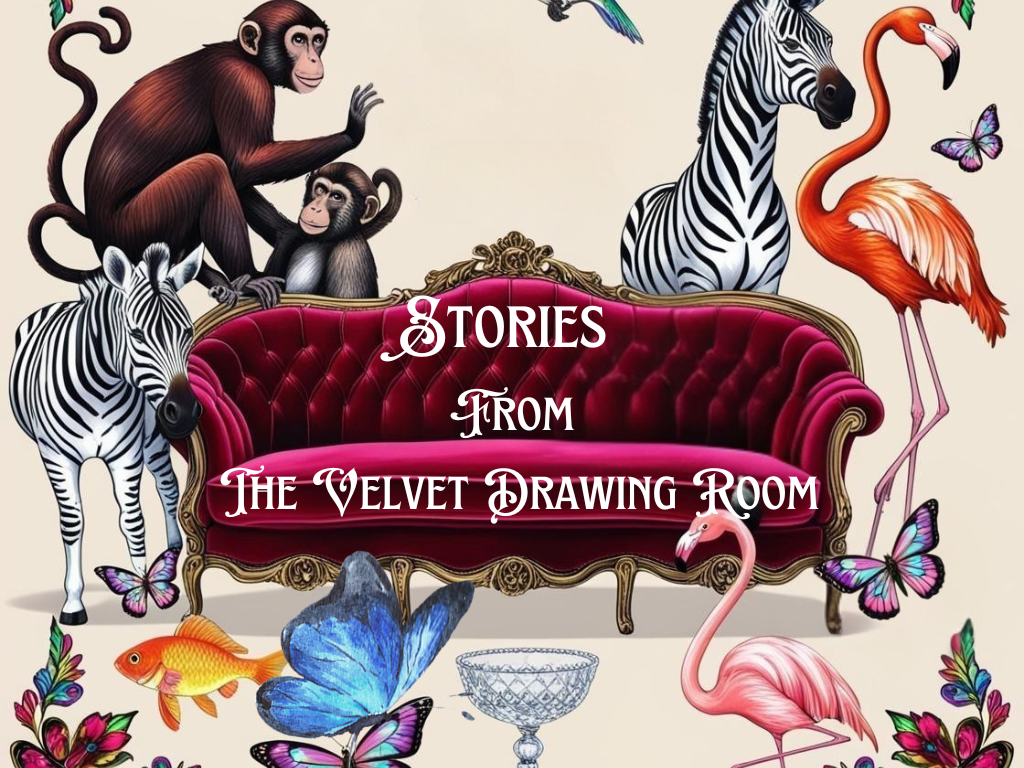
DARWIN, WALLACE AND BUFFON
It is impossible to look at the Victorians and the explosion of the interest and awakening in the science of natural history in Britain and in Europe and exclude Darwin, Wallace and Buffon.
But what can I add to the well-established and understood story of these three pioneers? The answer is nothing, and so here I am simply giving pointers to other sources of information should the reader wish to follow them.
Charles Darwin
From Wikipedia:
Charles Robert Darwin FRS FRGS FLS FZS JP (12 February 1809 – 19 April 1882) was an English naturalist, geologist and biologist, widely known for his contributions to evolutionary biology.
His proposition that all species of life have descended from a common ancestor is now generally accepted and considered a fundamental concept in science. In a joint publication with Alfred Russel Wallace, he introduced his scientific theory that this branching pattern of evolution resulted from a process he called natural selection, in which the struggle for existence has a similar effect to the artificial selection involved in selective breeding. Darwin has been described as one of the most influential figures in human history and was honoured by burial in Westminster Abbey.
Darwin’s early interest in nature led him to neglect his medical education at the University of Edinburgh; instead, he helped to investigate marine invertebrates. His studies at the University of Cambridge‘s Christ’s College from 1828 to 1831 encouraged his passion for natural science.
His five-year voyage on HMS Beagle from 1831 to 1836 established Darwin as an eminent geologist, whose observations and theories supported Charles Lyell‘s concept of gradual geological change. Publication of his journal of the voyage made Darwin famous as a popular author.
Puzzled by the geographical distribution of wildlife and fossils he collected on the voyage, Darwin began detailed investigations and, in 1838, devised his theory of natural selection.
Although he discussed his ideas with several naturalists, he needed time for extensive research, and his geological work had priority.
He was writing up his theory in 1858 when Alfred Russel Wallace sent him an essay that described the same idea, prompting immediate joint submission of both their theories to the Linnean Society of London.
Darwin’s work established evolutionary descent with modification as the dominant scientific explanation of diversification in nature.
In 1871, he examined human evolution and sexual selection in The Descent of Man, and Selection in Relation to Sex, followed by The Expression of the Emotions in Man and Animals (1872). His research on plants was published in a series of books, and in his final book, The Formation of Vegetable Mould, through the Actions of Worms (1881), he examined earthworms and their effect on soil.
Darwin published his theory of evolution with compelling evidence in his 1859 book On the Origin of Species. By the 1870s, the scientific community and a majority of the educated public had accepted evolution as a fact. However, many favoured competing explanations that gave only a minor role to natural selection, and it was not until the emergence of the modern evolutionary synthesis from the 1930s to the 1950s that a broad consensus developed in which natural selection was the basic mechanism of evolution. Darwin’s scientific discovery is the unifying theory of the life sciences, explaining the diversity of life
Image: Charles Darwin’s “Tree of Life” sketch
From Richard Dawkins:
Charles Darwin had a big idea, arguably the most powerful idea ever says Richard Dawkins
“Natural selection’s explanatory power is not just about life on this planet: it is the only theory so far suggested that could, even in principle, explain life on any planet. If life exists elsewhere in the universe – and my tentative bet is that it does – some version of evolution by natural selection will almost certainly turn out to underlie its existence. Darwin’s theory works equally well no matter how strange and alien and weird that extraterrestrial life may be – and my tentative bet is that it will be weird beyond imagining.”
But was Charles Darwin’s idea unique?
It seems not….
Alfred Russell Wallace
Alfred Russel Wallace is far from a household name, but he changed the world. Recovering from a bout of malaria on the remote Indonesian island of Halmahera, the young British biologist came up with an idea that would transform humanity’s view of itself: he worked out the theory of natural selection. Wallace wrote down his idea and sent it to Charles Darwin, who had been contemplating a similar theory of evolution for more than a decade. Both versions were read to members of the Linnean Society in 1858.
In 1858, in Halmahera, Wallace wrote his essay on natural selection and posted it to Darwin. Darwin and his friends, the botanist Joseph Hooker and Charles Lyell, were horrified. Darwin had been working on a similar theory for several years and now faced the prospect of being robbed of glory. Lyell and Hooker arranged a reading for Wallace’s paper and for a hastily written one by Darwin at the same meeting of the Linnean Society.
“It was a rather shabby trick,” said Bailey. “Wallace had sent his paper to Darwin to help get it published. Unluckily for him, he sent it to the one person in the world who had a vested interest in not seeing in print. Lyell and Hooker intervened and a reading was arranged instead.
“Darwin’s paper was read first and he is the one we now remember as the man who came up with the idea of natural selection. Wallace should have got priority, but it was Darwin, the man with the connections, who got the glory.”
Read the whole article here

Compte de Buffon, Georges-Louis Leclerc
The French aristocrat who understood evolution 100 years before Darwin – and even worried about climate change.
Shortly after Charles Darwin published his magnum opus, The Origin of Species, in 1859 he started reading a little-known 100-year-old work by a wealthy French aristocrat.
Its contents were quite a surprise. “Whole pages [of his book] are laughably like mine,” Darwin wrote to a friend. “It is surprising how candid it makes one to see one’s view in another man’s words.”
In later editions of The Origin of Species, Darwin acknowledged Georges-Louis Leclerc, Comte de Buffon, as one of the “few” people who had understood that species change and evolve, before Darwin himself.
Now a new book will attempt to shine a light on the French naturalist’s extraordinary achievements and groundbreaking ideas, which date back to the 1740s. “Buffon was one of the very first people to postulate the change of species over time,” said Jason Roberts, author of a new book, Every Living Thing, which will be published next week, on 11 April. “He did not call it evolution – that word was coined later – but he was one of the first people to talk about it and suggest there was some kind of system.”

Image: An engraviing of a Saki monkey (genus Pithecia) created in the 1700s for Georges-Louis Leclerc.
Text: The Guardian
Dedicated To Darwin: some of the best websites: From The Guardian
Dedicated to the life and times of Charles Darwin, AboutDarwin.com has news of books and events related to the naturalist.
Darwin Online is the largest repository of the great naturalist’s work – a collection of his writings and papers, both published and unpublished. It contains over 40,000 pages of searchable text and 125,000 images.
The Darwin Correspondence Project is a compilation of around 14,500 letters exchanged by Darwin and nearly 2000 correspondents around the world between 1821 and his death in 1882. They include missives to naturalists, thinkers and public figures as well as men and women who would be unknown had they not exchanged letters with Darwin.
The Darwin Day Celebration is an international celebration of all things Darwin held on 12th February – the great man’s birthday. The celebrations this year are the appetiser for 2009 which will be the 200th anniversary of Darwin’s birth and the 150th anniversary of the publication of On the Origin of Species.

Discover more from thevelvetdrawingroom.co.uk
Subscribe to get the latest posts sent to your email.




















